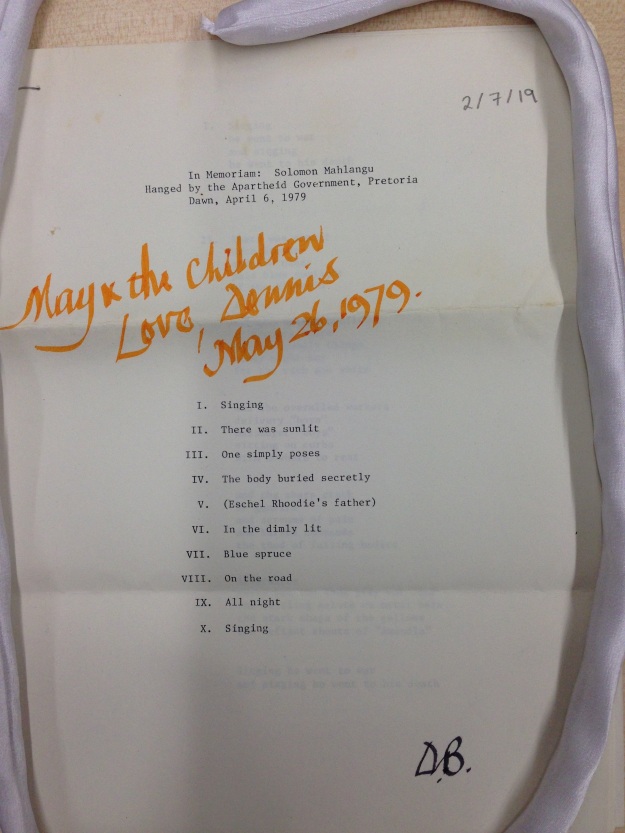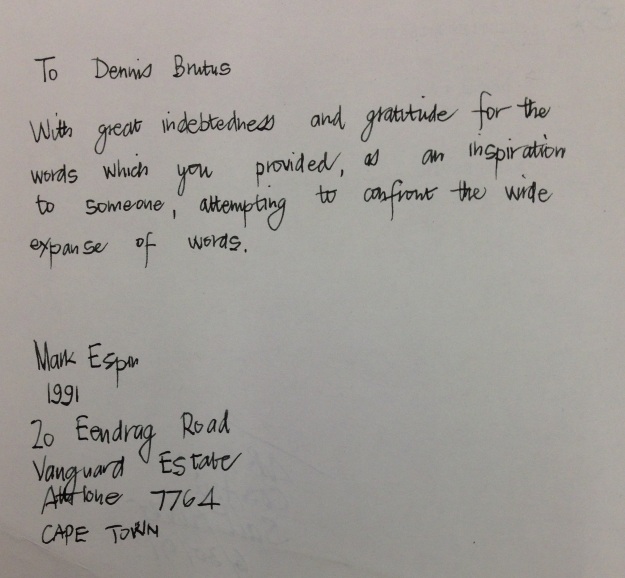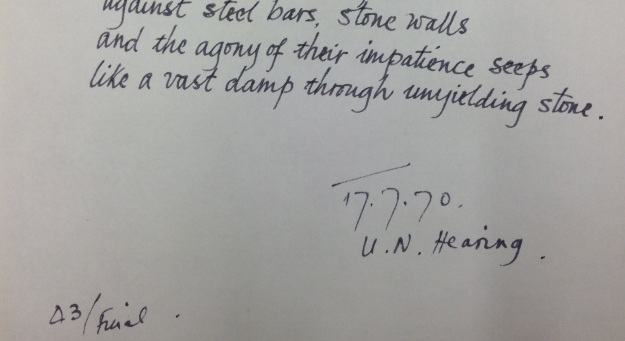Today it’s National Sporting Heritage Day and we’re blogging about one of our collections which is particularly relevant to this theme.
Dennis Brutus Collection
Dennis Brutus was a South African human rights activist, sports campaigner against apartheid, and poet. He is perhaps best known for his campaign to have apartheid South Africa banned from the Olympics. In the 1960s there were issues surrounding participation in the Olympic Games by teams from apartheid South Africa, where athletes were racially segregated and had to compete in separate trials. South Africa was banned from the 1964 Games, but controversy resurfaced concerning involvement in the 1968 Games in Mexico City. Various athletes threatened a boycott if the team from South Africa was allowed to compete, and South Africa was eventually banned from the Games and from the Olympic movement, not reinstated until 1990.The Dennis Brutus collection held at Brunel is a valuable resource for the study of this controversy.
Dennis Brutus (1924-2009) was a founder of the South African Sports Association in 1961 and of the South African Non-Racial Olympic Committee (SANROC) in 1963, of which he became president. He was refused a passport and later imprisoned; other members of SANROC suffered similarly, but the organisation was revived in London in 1966, when Brutus managed to move to Britain. Pictured above are a range of documents on the Olympic boycott.






